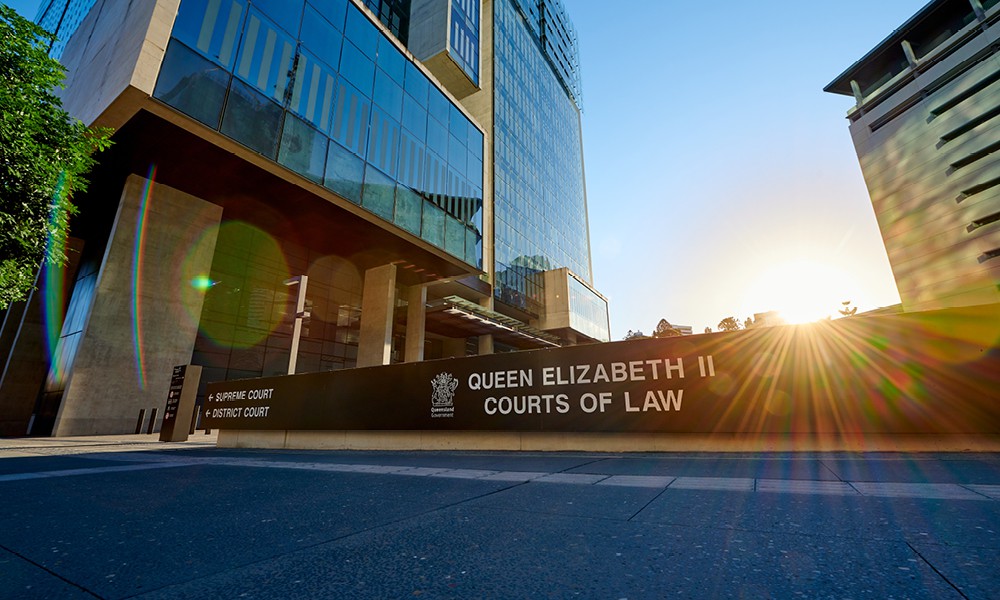A judge has taken a second swipe at the Queensland Government’s two decades of “policy failure” to provide suitable post-prison housing for dangerous sex offenders – this time saying it may breach their human rights.
Brisbane Supreme Court Justice Peter Applegarth yesterday made an interim order ensuring the ongoing detention of 78-year-old Desmond Ronald Grant, whose full-time release date after serving a five-year sentence for sexual offences is 22 September 2022.
However, Justice Applegarth adjourned the hearing and ordered that the Queensland Human Rights Commission be notified about Grant’s case so it could consider whether it should intervene in the proceedings.
Attorney-General Shannon Fentiman is seeking an indefinite jail term for Grant, after having fully served his court-imposed prison term, under the state’s dangerous prisoner sexual offender (DPSO) laws.
The case comes less than a week after Justice Applegarth voiced concerns about the current validity of the state’s Dangerous Prisoner (Sexual Offender) Act 2003 – saying: “The government fails to adequately manage and effectively resource a system of its own making.”
On Monday, QLS Proctor reported that Justice Applegarth raised the topic as he ordered the ongoing imprisonment of 69-year-old Edwin Arthur Guy during the sixth annual review of his detention under DPSO laws, despite having already served his sentence.
Guy, who has Parkinson’s disease, is of low intelligence and needs full-time care, was jailed for 10 years in 1998 for 34 sexual offences against children.
Justice Applegarth, in a decision published last Thursday, said: “The Supreme Court of Queensland has become a very expensive accommodation agency. The financial cost of the government not arranging suitable, secure accommodation for individuals who are or might be subject to supervision orders must be enormous.”
In a 22-page decision delivered yesterday, Justice Applegarth raised concerns about possible human rights violations of people deemed dangerous sexual offenders by courts and the government’s failure to provide suitable housing and care for elderly and frail offenders like Grant.
He said it was “not evident that those policy decisions comply” with Queensland’s Human Rights Act (2019) (HRA).
“(Grant) is aged 78,” he said. “Given his history and the risk assessments that are before the Court, (Grant) accepts that the Court will find that he is a ‘serious danger to the community’ in the absence of (a supervised release order).
“(Grant) is not in such a frail condition that he cannot walk or attend to his own care. Still … the medical evidence before me confirms, he needs support.
“(The) issue is whether the contingency accommodation … is appropriate for someone with the (Grant’s) serious health conditions. (He) needs semi-supported, hostel-style accommodation. However, such accommodation is presently unavailable to him.
“Evidence about (Grant’s) medical problems and the absence of policies that would enable him to obtain the support to which he is entitled in a precinct house prompts one to ask this question: Would (he) be better off in jail? If that were the only question, then the answer would be ‘yes’.
“The central issue, however, is not what is best, in my opinion, for (Grant’s) health or longevity. Nor is the central issue whether the public interest is better served by an elderly man with serious and deteriorating health conditions being cared for and supported in jail rather than living in an isolated house, with other sex offenders, on the outskirts of Townsville, largely unsupported and fending for himself.”
Justice Applegarth said the court’s sole role was to determine whether protecting the community from a potentially serious sexual offender could be assured by releasing Grant by way of a conditional supervised release order.
“I find that adequate protection of the community may be ensured by the making of a supervision order (to Grant),” he said. “The difficult question is whether I should exercise my discretion to not make such an order, despite the Attorney-General’s acknowledgement and (Grant’s) preference for such an order to be made.
“At this stage, I am not inclined to make a supervision order for 10 years that consigns (Grant) to precinct accommodation under arrangements that the medical evidence indicates will jeopardise his health.
“Nor am I inclined to make a final continuing detention order at this stage that consigns (Grant) to indefinite detention in jail and the kind of revolving door displayed in Guy’s case.
“(Grant’s) health condition is not the same as Mr Guy’s, who needed nursing home accommodation. Imprisonment is not the only option for (Grant) due to the absence of nursing home accommodation.
“However, (Grant) is likely to need increasing care as he enters his 80s. The practical problem of appropriate support and accommodation is the same in both cases.
“The government policy decisions that deny (Grant) appropriate support and accommodation in precinct housing or semi-supported, hostel-style accommodation are critical to the proper exercise of my discretion. It is not evident that those policy decisions comply with the HRA.”
Justice Applegarth, in his decision, directed that the Queensland Rights Human Commission be notified of his findings to consider if it should intervene before the A-G’s application is considered further.
He also ordered that the Queensland Corrective Services (QCS) Chief Executive be added as a respondent to the application, noting: “(QCS) has a policy of not allowing external domestic care, daily living or medical supports to be provided at contingency accommodation.”
More than five years ago, Queensland’s then Chief Justice Catherine Holmes flagged her concerns about the lack of suitable housing when first considering whether Guy should be released.
“It is deeply troubling to think that people who could be managed and rendered relatively risk-free with appropriate support and accommodation, must instead, be imprisoned as the only option,” she said.
Grant’s matter has been adjourned to a date to be fixed.
Read the decision.














Share this article